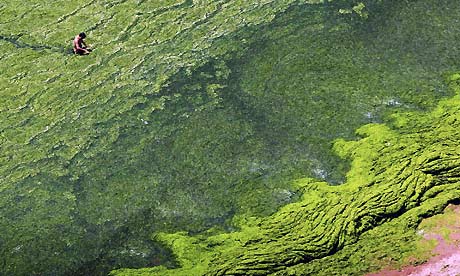You have to hear Bill Maher say it. Why do people like to travel ? Answer: to get laid. It is one of those instances where comedians tell us what we all know to be true. Sure, there are the tourist attractions, but the number one attraction is the other people who are also there to view them. There is ample evidence to support this non-conventional view. From the crusades to the missionaries, to modern day tourism, we can see the evidence plainly written in mitochondrial and Y chromosome DNA.
Have you ever wondered why people living in exotic travel destinations never go see the local sights? It often takes out of town visitors for them to even consider looking at those "fabulous treasures." I have lived in San Francisco for decades and never been to Alcatraz. I think I have been to Muir woods twice, both times because out of town visitors wanted to go there. The same applies to ChinaTown, Fisherman's Warf, Pier 39, and all other tourist attractions. I lived in other tourist hotspots and they too never inspired me to go see the sights.
And I am not alone. I went to Boston recently to visit a friend. He too took me places that are high on the tourist must-see list but that he, as a life-long Boston resident had never bothered to see. Everyone knows stories like these.It is not that we are immune to natural beauty. But natural beauty can be found everywhere and anytime. It is a free commodity and not something you need to go travel for to experience.
Furthermore, a lot of it is in the eye of the beholder. Sure you can look over the Grand Canyon or Monument Valley and be amazed. But as Marc Reisner points out in "Cadillac Desert," the desert only looks wondrous and attractive from an air-conditioned car with a cooler full of cold drinks. If you had to survive there, you wouldn't be nearly as impressed. Even Hawaii with its spectacular volcanoes is no different. If it weren't for all the goodies we constantly ship in, paradise would look as desperate and dreary as Father Damian saw it.
Hawaii, like all beach destinations is about the surfer dudes and the bikini girls. The hard bodies on the beach. Now that is a sight worth seeing ! Men of course would only grudgingly acknowledge this in public. Because men, as we all know, buy PlayBoy for the articles.

There are only so many sunsets one can watch. And only so many new and exciting landscapes. Sure the romantic pictures matter somewhat, but face it, it is not the tropical beach but the bodies lying on that beach that count. And the clubs and the nightlife. It is not the ski, but the apres-ski that we are looking for. If not, why put up with all the lift lines and the hassle?
In tourist hotspots such as Las Vegas, Bangkok, Phuket, and Spain, the sex industry is alive and well. That industry does not just comprise sex workers but also the many nightclubs and bars where eager souls can pick up new companions. In some cases it goes so far as to support a "scavenger population."
I saw a program recently documenting the many single males living a minimal existence on the Spanish coast. They try to survive winter doing odd jobs here and there. They live frugally to the point of poverty and have but one goal. Like raptors they are eagerly awaiting the tourists that arrive in Spring. To take advantage of the relaxed atmosphere that gives many women the green light for an adventure or a one-night stand.
Despite the reproductive advantage, traveling is not something that humans are well adapted for. It comes at a price. There are dangers on the road, and dangers in the encounter with foreigners. There are illnesses, some quite serious. Even today, with tourism bringing in billions of dollars, and tourist-destinations eager to protect their source of income, travelers are at increased risk for illness, injury, and death. It is not something you read about a lot and the travel industry does its best to ignore it or brush it away. But every year, a lot of people die. Even more are assaulted, robbed, or kidnapped.
Travel also plays a key role in epidemics and pandemics. Travel is a major contributor to global warming and environmental destruction. From the planes, cars, and buses, to the garbage people leave behind, tourism is damaging and destructive. Unfortunately, it does not end there. Tourism also leaves its mark in infrastructure. An infrastructure that is often poorly adapted to the local circumstances.
Tourism plays a major role in the current water crisis in Southern Spain. The crisis goes largely unnoticed for now, but its impact is devastating. Spain is a good example because it contains many fragile environments and receives more tourists than almost any other destination on the planet. Almost 50 million people make an annual trek to the Spanish coast each and every year. They go there to do those things that they would never contemplate doing at home. But what happens in Spain is not an isolated phenomenon. It happens everywhere else too. Florida's ecosystem has been trashed by retirees and visitors alike. The everglades have seen their best days. The reefs are all but depopulated. The same is happening to the SouthWest. The spread of golf courses and swimming pools is contributing to water shortages and putting stress on the ecosystems.
Like so many other things in modern life, travel is one area where the consumer does not pay the true cost of the trip. If they did, travel would once again become rare and be the prerogative of the very rich. Not that that would be a bad thing. After a while, I am sure nobody would miss it very much.














